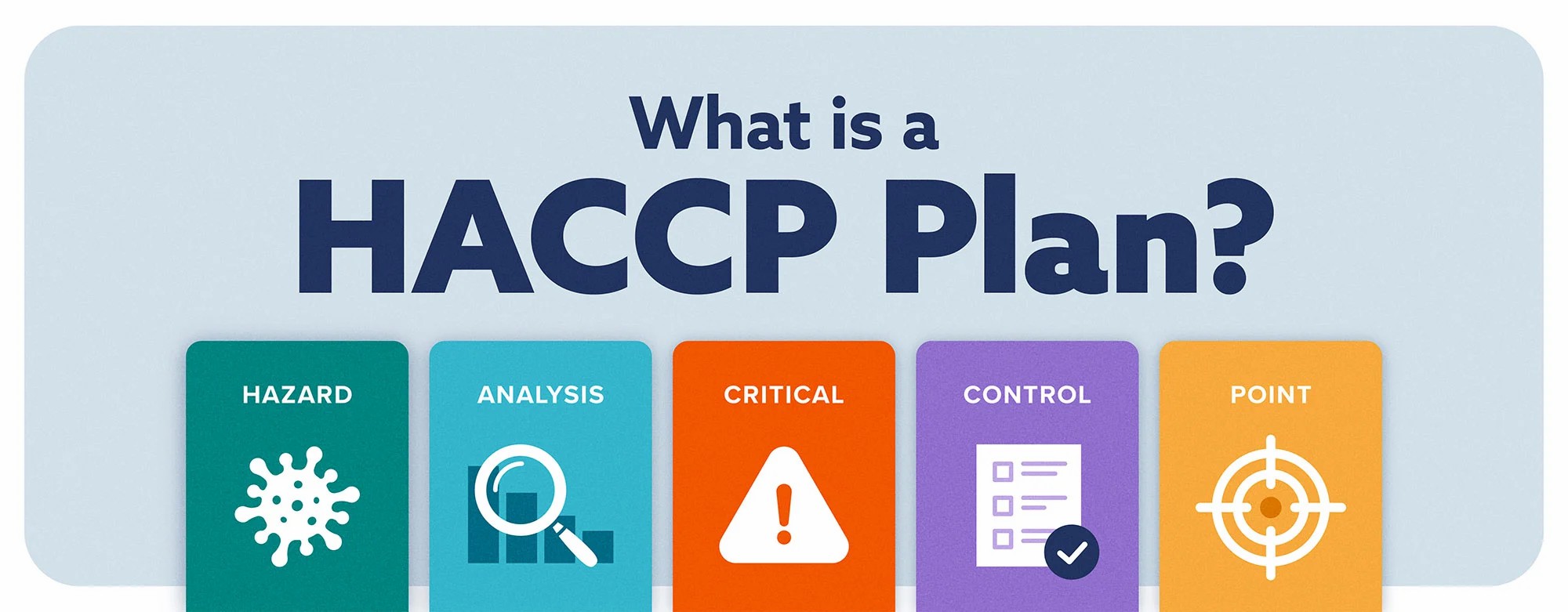HACCP Certification: Your Essential Guide to Food Safety Compliance in Dublin, Cork, Galway, and Across Ireland
In today's food industry, ensuring safety and compliance is paramount. In Ireland, including cities like Dublin, Cork, Galway, Limerick, Waterford, and Belfast, HACCP training is not just a best practice – it is a legal requirement for all food businesses. Understanding why HACCP certification is essential can help your business not only comply with Irish and EU food safety laws but also build trust with your customers.
What is HACCP?
(Hazard Analysis Critical Control Point) is a management system that focuses on food safety through the analysis and control of biological, chemical, and physical hazards. Implementing HACCP principles reduces the risk of food contamination and illness.
Key HACCP Principles Include:
- Conducting a hazard analysis: Identifying potential food safety hazards in your operations.
- Determining Critical Control Points (CCPs): Points in the process where controls can be applied to prevent or eliminate hazards.
- Establishing critical limits: Set minimum or maximum values to ensure that each CCP is under control.
- Monitoring procedures: Establishing procedures for monitoring each CCP to ensure it stays within critical limits.
- Corrective actions: Identifying actions to be taken when a critical limit is not met.
- Verification procedures: Ensuring that the HACCP system is working effectively.
- Recordkeeping: Keeping detailed and accurate records to document the processes and decisions.
Why is HACCP Training a Legal Requirement?
The EU regulations dictate that food businesses must have a systematic approach to food safety management. This is where HACCP comes in. It is crucial for:
- Compliance with Irish Food Safety Laws: HACCP is required by law under EU food legislation. Failing to implement HACCP can lead to severe penalties and potential closure of your business.
- Preventing Food Contamination: By identifying potential risks, businesses can prevent occurrences of foodborne illnesses, which are detrimental to both health and business reputation.
- Building Customer Trust: HACCP certification shows customers that your business prioritizes their health and safety, enhancing overall trust and loyalty.
The Business Benefits of HACCP Training and Certification in Ireland
Implementing HACCP goes beyond compliance; it leads to numerous business advantages, including:
- Improved Food Safety Standards: Regular training and monitoring help maintain high food safety standards.
- Reduction in Food Waste: By managing hazards efficiently, businesses can reduce unnecessary waste.
- Enhanced Reputation: A certified HACCP status can be a marketing advantage, attracting more customers.
How to Get HACCP Certified: A Step-by-Step Guide for Food Businesses
- Assess Your Current Food Safety Practices: Review and identify gaps in your current processes that need to be addressed.
- Enroll in a HACCP Training Course: Find a reputable HACCP training course tailored for your type of business.
- Implement HACCP Principles: Utilize the knowledge gained to implement recognized HACCP principles in your daily operations.
- Document Procedures: Keep precise records of your HACCP plan.
- Undergo an Audit: Schedule a HACCP audit to verify compliance and identify any areas for improvement.
- Receive Certification: Once compliant, the certification will be issued, marking you as a HACCP-certified business.
Comparing Online vs. In-Person HACCP Training Courses
Both online and in-person courses have their own set of advantages:
- Online HACCP Training: More flexible and often more affordable, suitable for businesses with busy schedules.
- In-Person Training: Provides hands-on learning and direct interaction with instructors, beneficial for those new to food safety management.
Common HACCP Violations and How to Prevent Them
Understanding typical pitfalls can help prevent costly mistakes. Here are common violations:
- Inadequate recordkeeping
- Failure to monitor critical limits
- Poor staff training
- Neglecting to conduct regular audits
Preventive Measures:
- Regular staff training sessions to keep everyone informed and compliant.
- Establish a culture of food safety within the organization.
- Use software to simplify recordkeeping processes.
How HACCP Compliance Enhances Business Reputation and Consumer Confidence
Maintaining HACCP compliance not only meets legal obligations but also elevates your brand image among consumers. A HACCP-certified business is seen as committed to quality and safety, significantly impacting customer choice.
How to Conduct a HACCP Audit and Maintain Ongoing Compliance
Regular audits are essential to ensure ongoing compliance and can be conducted as follows:
- Review your HACCP plan: Check for any significant changes in your process or product that may affect safety.
- Verify records: Ensure that all monitoring and corrective actions are documented.
- Conduct staff interviews: Assess whether staff understands the HACCP principles instilled in your business.
- Audit tools: Use checklist tools to standardize the audit process.
Conclusion
In an ever-evolving regulatory landscape, HACCP training is an indispensable part of running a food business in Ireland. By understanding and implementing HACCP principles, food businesses can ensure compliance with food safety regulations, prevent contamination, and build unwavering customer trust.
Ready to get started with HACCP Training? Enroll in our comprehensive HACCP training courses today or contact us at [email protected] for more information!



 349,500 Offered Certificates
349,500 Offered Certificates
 24/7 Online Training
24/7 Online Training
 Money Back Guarantee
Money Back Guarantee
 Fully Accredited Courses
Fully Accredited Courses
